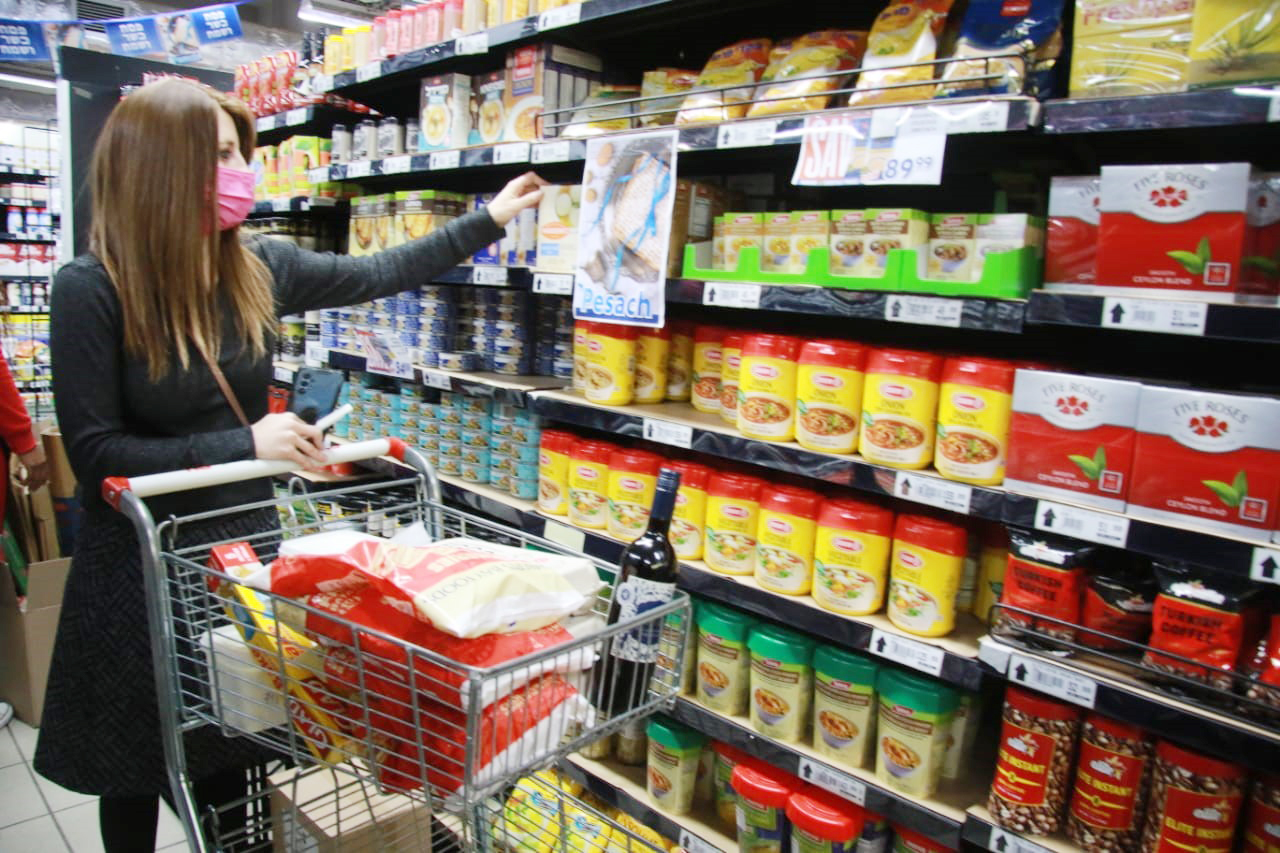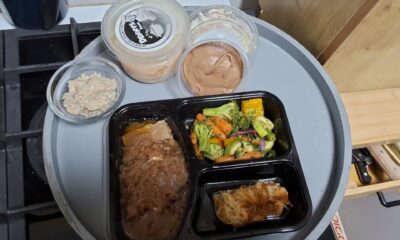
Featured Item

Sky high Pesach prices spur innovative shopping strategies
The talk at the local supermarket, on social media, and at parent pick-ups is that many people are so stressed by high Pesach prices, they might even consider not keeping a 100% kosher chag this year. Yet, there’s no need to abandon Pesach – it’s all about smart shopping, planning, going back to basics, and asking for help when you need it.
Though the food we eat on Pesach may not rise, that unfortunately doesn’t apply to the prices we pay for them. From matzah to matzah meal – if you can find it – to meat, chicken, jam, and much more, there’s no denying that Pesach prices have increased exponentially this year.
Jody Eberlin, marketing and food projects manager at Yad Aharon & Michael, South Africa’s largest Jewish food fund, agrees. Yad Aharon supplies 680 families with kosher food throughout the year, but during its Pesach campaign, it helps an additional 20 families.
“They make up what we call our ‘specials list’ – families or individuals who can manage during the year but not over Pesach because food is so expensive,” she says. “All 700 families receive Pesach hampers, not only for their seders, but also for all of the eight days.” Hampers are made up of Pesach essentials including matzah, matzah meal, eggs, chicken, meat, fish, and so on. The only real “treats” are crisps and syrup.
“This year, we’ve had to spend half a million rand more than we did on the same foods last year,” says Eberlin. “Obviously, we’re talking very big quantities, but that still suggests significant increases.” This has naturally intensified the need for donations – yet while the community’s generosity is astounding, with families having to increase their own Pesach budgets, there’s less left over for tzedakah.
Yet, Yad Aharon is here to help, says Eberlin. “People can approach us anonymously and we also offer tops-ups and urgent assistance over chol hamoed [the weekdays of the festival] for families who aren’t coping. Finances should never be a reason not to observe Pesach.” Community organisations including Yad Aharon and the Chevrah Kadisha ensure that this doesn’t happen.
If you can afford Pesach products and are just feeling more strain than usual this year, there are other options. Shani Smith suggests a simpler approach by following Chabad traditions. “As a Chabadnik, I keep a very strict Pesach in which I don’t buy store-bought products and only use fresh ingredients,” she says. “It’s simple, healthy, back to basics, and certainly very humbling! That’s the message of Pesach in and of itself.”
From farm fresh fruit and roast vegetables to roast chicken made with herb oil rubs, to eggs for breakfast, it’s all about wholesome goodness, she says. “There’s no need to buy all the expensive imported products, and it’s amazing what you can do! Mint pineapple and apple slush, berry granita, fresh oranges, and grapefruits for dessert. We bond as a family, preparing fresh salads in the kitchen. It’s such a wonderful learning opportunity for the kids as they become little “MasterChefs”, peeling, and chopping, tasting and frying with you. My girls are expert mayonnaise makers, which we turn into our own salad dressings.”
It’s about being innovative, she says. For example, to make matzah meal, you can finely grind matzah in a food processor. “If we stop stressing so much and reduce our anxiety about Pesach, our children will pick up on our enthusiasm and enjoyment,” says Smith. “In today’s times, people just need a dose of positivity and motivation to know that it’s achievable.”
Saving money on Pesach is also about being practical. “I have always planned my meals and Pesach, and the seders are no different,” says housekeeping management specialist, Adrienne Bogatie. “Meal planning saves you a fortune.”
The seder meals need not be massive feasts, she says. “In Israel, it’s common just to have the egg and saltwater, and then soup and kneidlach after the last compulsory piece of matzah is eaten and before the afikomen. We have the egg and saltwater, the soup, one protein [meat or chicken], two veg, and then sorbet – which saves money on expensive parev cream substitutes – and fresh fruit.”
Family lunches are generally made up of leftovers. “During the week, there are baked potatoes with toppings like cheese or cream, tuna salad, grilled chicken and salad. I make pickled cucumbers and mushrooms, mayonnaise, and pasta sauce to use instead of store-bought tomato sauce.” Tomato soup, butternut soup, baby marrow soup, and potato soups are all very filling and easy to make, she says.
Bogatie also suggests exchanging skills and resources with friends. “If you have a friend who is really good at Pesach baking, ask them to make you some biscuits instead of going out to buy them,” she says. Then, you, in turn, can provide your speciality dish. If guests cannot bring food to a meal, ask them to bring drinks to save on those costs.
In terms of sharing resources with friends or family, some have also taken to splitting their Pesach groceries and associated costs. “For the past two years, my wife and I have shared some of the kosher-for-Pesach items we have bought such as sugar, six-packs of Coke, coffee, tea, spices, lemon juice, and sweetener with my parents and in-laws,” says Dovid Katz*.
“We have a standard shopping list that we made a few years ago to help ease the stress of Pesach shopping. From that, we make a list of goods that are easy to share and won’t be fully used over Pesach.
“People are starting to realise that it’s silly to buy a whole new jar of coffee or a whole new bag of sugar or salt when they are going to use only a small amount of it,” he says. “Especially since most stores don’t accept returns for Pesach items, most of which will probably have gone off by next year, and you land up being stuck with them if you bought too much.”
*Name has been changed.










